
Kokrobite: Ghana's Coastal Gem
Kokrobite is a charming coastal town located just 30 kilometers west of Accra, Ghana’s bustling capital. This serene destination is known for its pristine beaches, vibrant culture, and relaxed atmosphere. Whether you're looking to unwind by the sea or immerse yourself in local traditions, Kokrobite offers a perfect blend of relaxation and adventure. The town is famous for its lively beach scene, where visitors can enjoy sunbathing, swimming, and surfing. The waves here are ideal for both beginners and experienced surfers. In the evenings, the beach comes alive with music and dance, offering a glimpse into the rich cultural heritage of Ghana. Don’t miss the chance to experience local drumming and dancing at one of the many beachside bars and restaurants. Kokrobite is also home to the renowned Academy of African Music and Arts (AAMA), which attracts artists and musicians from around the globe. Here, you can take part in workshops or simply enjoy performances that showcase the best of African music and dance. The town's vibrant arts scene is complemented by its welcoming community, making it an ideal destination for those seeking a cultural experience. For nature lovers, a visit to the nearby Bojo Beach is a must. This secluded beach offers a more tranquil setting and is perfect for a peaceful day by the water. The surrounding area also boasts lush greenery and diverse wildlife, providing ample opportunities for hiking and bird-watching. Kokrobite's charm lies not just in its beautiful beaches and cultural activities, but also in its warm hospitality. The local cuisine is a highlight, with fresh seafood and traditional Ghanaian dishes that will tantalize your taste buds. Whether you're staying in a cozy beach hut or a luxury resort, you'll find that the friendly locals and relaxed vibe make Kokrobite a truly special destination.
Local tips in Kokrobite
- Visit during the dry season (November to March) for the best weather and beach conditions.
- Try the local dish, ‘Red Red’ – a delicious combination of black-eyed peas and fried plantain.
- Bring cash, as many local vendors and smaller establishments do not accept credit cards.
- Take a surf lesson at one of the local surf schools, even if you're a beginner.
- Plan to attend a drumming and dance workshop at the Academy of African Music and Arts.
Kokrobite: Ghana's Coastal Gem
Kokrobite is a charming coastal town located just 30 kilometers west of Accra, Ghana’s bustling capital. This serene destination is known for its pristine beaches, vibrant culture, and relaxed atmosphere. Whether you're looking to unwind by the sea or immerse yourself in local traditions, Kokrobite offers a perfect blend of relaxation and adventure. The town is famous for its lively beach scene, where visitors can enjoy sunbathing, swimming, and surfing. The waves here are ideal for both beginners and experienced surfers. In the evenings, the beach comes alive with music and dance, offering a glimpse into the rich cultural heritage of Ghana. Don’t miss the chance to experience local drumming and dancing at one of the many beachside bars and restaurants. Kokrobite is also home to the renowned Academy of African Music and Arts (AAMA), which attracts artists and musicians from around the globe. Here, you can take part in workshops or simply enjoy performances that showcase the best of African music and dance. The town's vibrant arts scene is complemented by its welcoming community, making it an ideal destination for those seeking a cultural experience. For nature lovers, a visit to the nearby Bojo Beach is a must. This secluded beach offers a more tranquil setting and is perfect for a peaceful day by the water. The surrounding area also boasts lush greenery and diverse wildlife, providing ample opportunities for hiking and bird-watching. Kokrobite's charm lies not just in its beautiful beaches and cultural activities, but also in its warm hospitality. The local cuisine is a highlight, with fresh seafood and traditional Ghanaian dishes that will tantalize your taste buds. Whether you're staying in a cozy beach hut or a luxury resort, you'll find that the friendly locals and relaxed vibe make Kokrobite a truly special destination.
When is the best time to go to Kokrobite?
Iconic landmarks you can’t miss
Kaneshie Market Complex
Discover the vibrant Kaneshie Market Complex in Accra, a bustling hub for local crafts, fresh produce, and a taste of authentic Ghanaian culture.
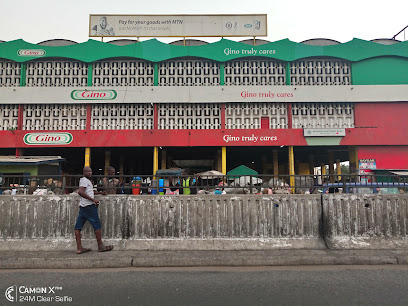
Cape Coast Castle
Explore the haunting beauty of Cape Coast Castle, a UNESCO World Heritage site that reveals the poignant history of the transatlantic slave trade in Ghana.
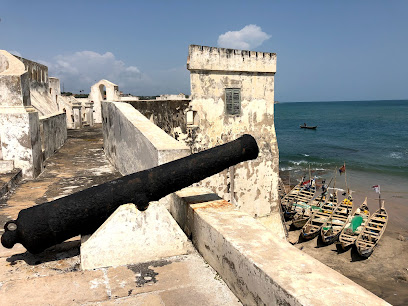
Kwame Nkrumah Memorial Park & Mausoleum
Explore the Kwame Nkrumah Memorial Park & Mausoleum, a serene tribute to Ghana's independence leader and a beautiful escape in the heart of Accra.
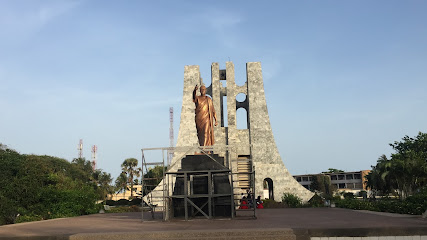
Legon Botanical Gardens Ghana..
Experience tranquility and natural beauty at Legon Botanical Gardens in Accra, Ghana, a perfect escape for tourists and nature lovers.
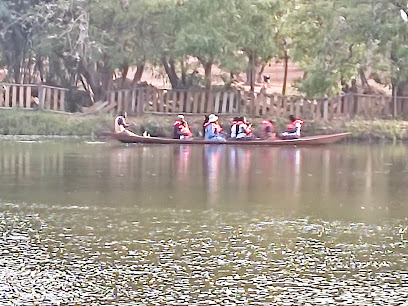
Centre for National Culture
Immerse yourself in Ghana's vibrant arts and crafts scene at the Centre for National Culture in Accra, where tradition meets creativity.
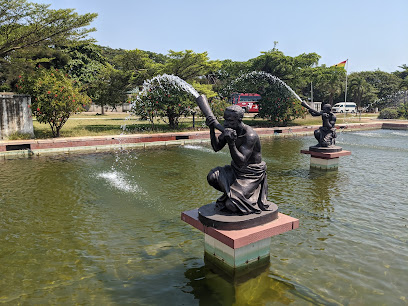
W.E.B Du Bois Memorial Centre for Panafrican Culture - Ghana.
Explore the rich heritage of Pan-Africanism at the W.E.B. Du Bois Memorial Centre, where history and culture unite in Accra, Ghana.
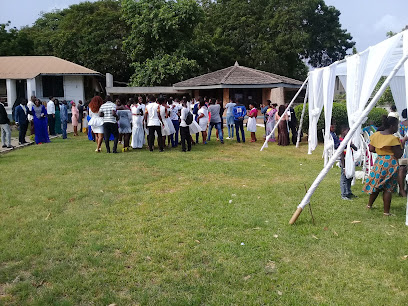
Bojo Beach Resort
Experience the beauty of Ghana at Bojo Beach Resort, where relaxation meets adventure on the stunning Atlantic coast.

W.E.B. DuBois Centre in Accra
Discover the rich legacy of W.E.B. DuBois at this inspiring museum dedicated to his life and work in Accra.
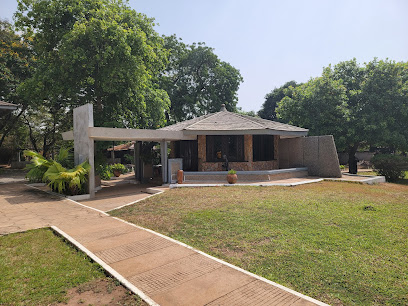
National Museum of Ghana
Explore the National Museum of Ghana in Accra and immerse yourself in the rich cultural heritage and history that defines this vibrant nation.
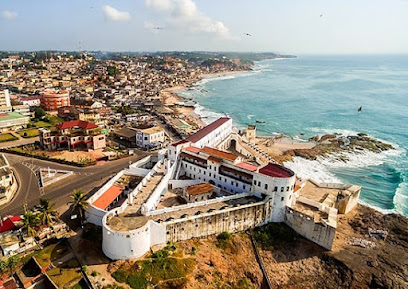
Valco Roundabout
Experience the vibrant culture and history at Valco Roundabout, a lively landmark in Tema, Ghana, where community and commerce thrive.
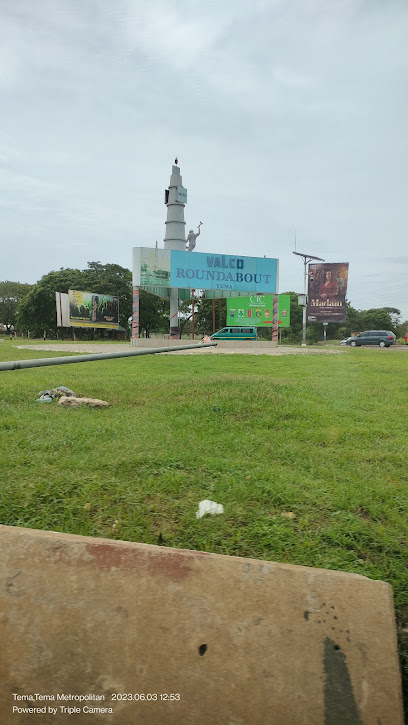
The Luxury Beach Resort
Experience unparalleled luxury at The Luxury Beach Resort in Bortianor, Ghana, where pristine beaches meet exquisite hospitality and vibrant experiences.
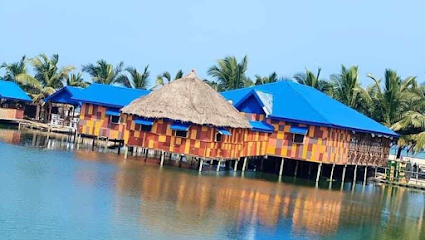
Bojo Beach
Discover the beauty of Bojo Beach, Accra's best-kept secret, where golden sands meet crystal-clear waters and vibrant local culture.
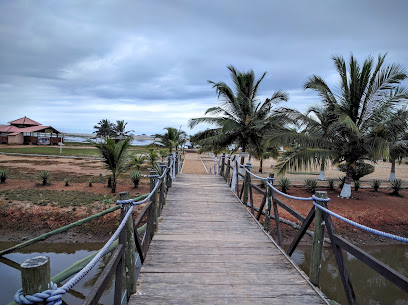
Boti Waterfalls
Explore the enchanting Boti Waterfalls, a breathtaking natural gem in Ghana, perfect for relaxation, adventure, and cultural immersion.
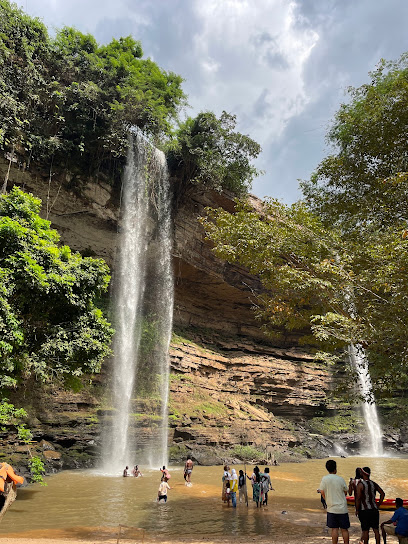
Big Milly's Backyard
Discover the charm of Big Milly's Backyard in Kokrobite, where relaxation meets vibrant Ghanaian culture and stunning coastal views.

Accra Zoo
Immerse yourself in the natural beauty and diverse wildlife of Accra Zoo, a serene escape within Achimota Forest.
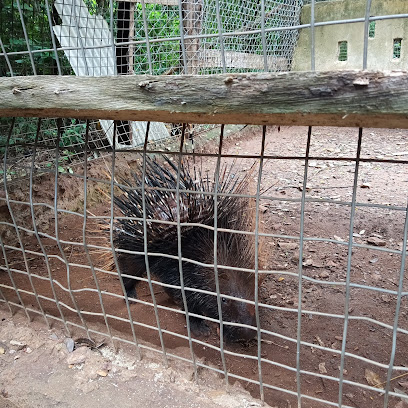
Unmissable attractions to see
Achimota Forest
Explore Achimota Forest: A lush escape in Accra filled with diverse wildlife, scenic trails, and serene picnic spots.
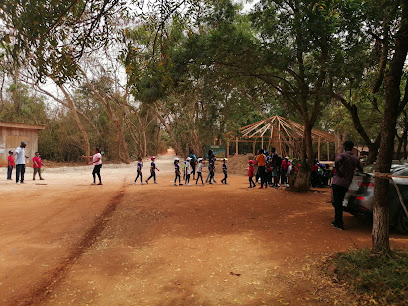
Efua Sutherland Children's Park
Discover the charm of Efua Sutherland Children's Park in Accra, a delightful escape for families and nature lovers alike.
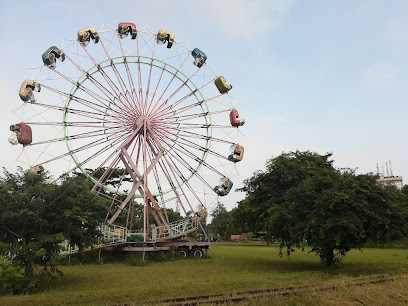
Fort James
Explore Fort James, a historic fortress in Accra, Ghana, rich in colonial history and stunning coastal views.
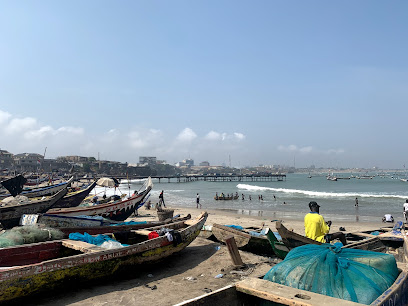
Dansoman Children's Park
Discover the joy of family time at Dansoman Children's Park, a green oasis in Accra with playgrounds, sports, and picnic areas.
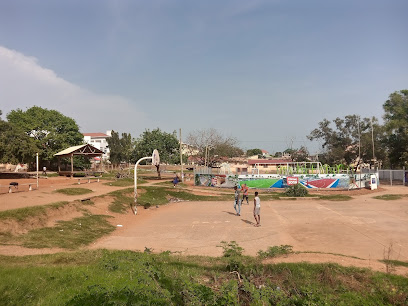
WISDOM FROM ABOVE COMPANY
Explore the heart of Accra at Wisdom from Above Company, where culture, art, and local traditions come alive in an unforgettable experience.
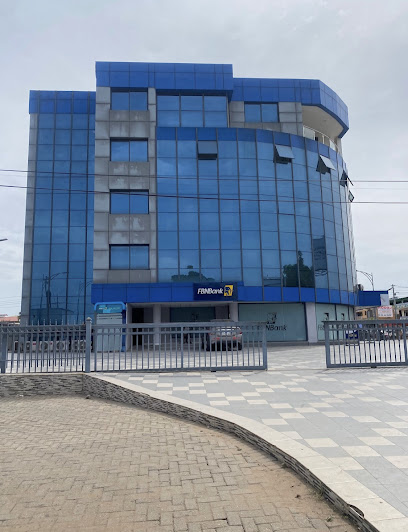
Atlantic Beach Bar & Grill
Experience the vibrant atmosphere and delicious flavors at Atlantic Beach Bar & Grill in Kokrobite, Ghana, a top spot for tourists and locals alike.
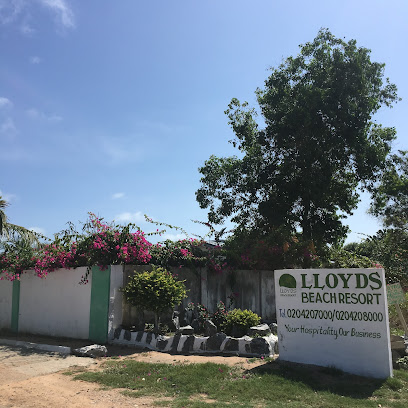
Fort Good Hope
Discover the historical essence of Ghana at Fort Good Hope, a remarkable museum revealing the tales of the past against stunning coastal views.
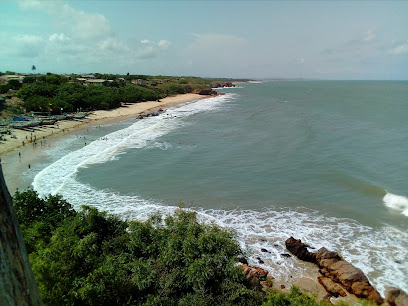
Palace Park, Bortianor - Ghana
Experience the tranquility of Palace Park in Bortianor, Ghana, where lush landscapes meet cultural charm for an unforgettable retreat.
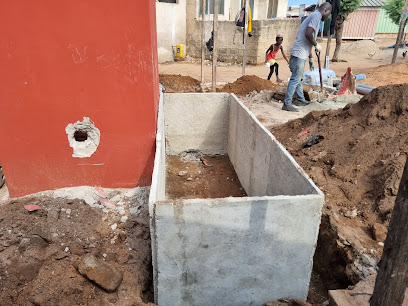
Statue Of Kwame Nkrumah
Explore the Statue of Kwame Nkrumah in Accra, a tribute to Ghana's independence and a captivating symbol of national pride.
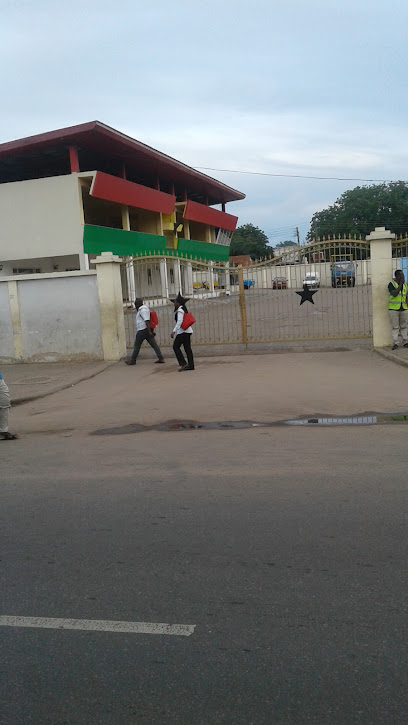
Peaks & Valleys Outdoors
Discover thrilling outdoor adventures and breathtaking landscapes at Peaks & Valleys Outdoors, the ultimate destination for nature lovers in Ghana.
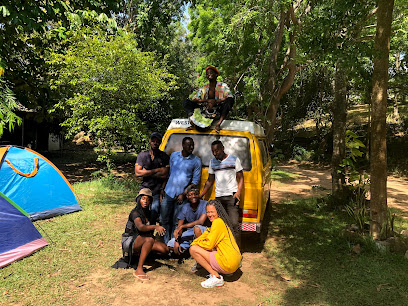
Grove Beach Nyanyanu
Experience the tranquil beauty of Grove Beach Nyanyanu, a hidden gem in Ghana offering stunning views, local culture, and endless relaxation.
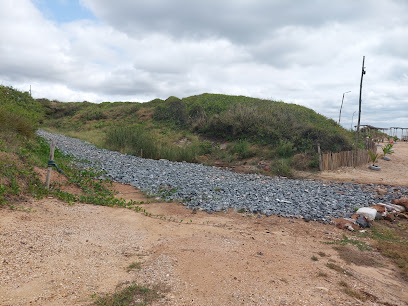
Sabony Park
Discover the tranquil beauty of Sabony Park in Kasoa, a serene escape perfect for picnics, leisurely strolls, and enjoying nature's splendor.
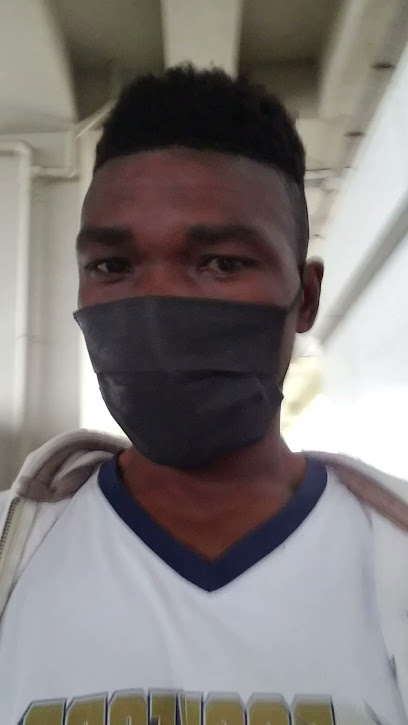
Langma Beach House
Experience the tranquil beauty of Langma Beach House in Kasoa, a pristine beach destination blending relaxation, culture, and breathtaking sunsets.
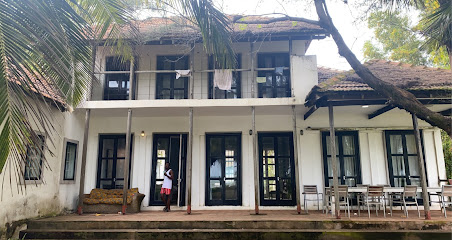
Tikar exotic curios
Explore Tikar Exotic Curios in Accra, a vibrant tourist attraction celebrating Ghanaian artistry and culture with handcrafted treasures and unique artifacts.
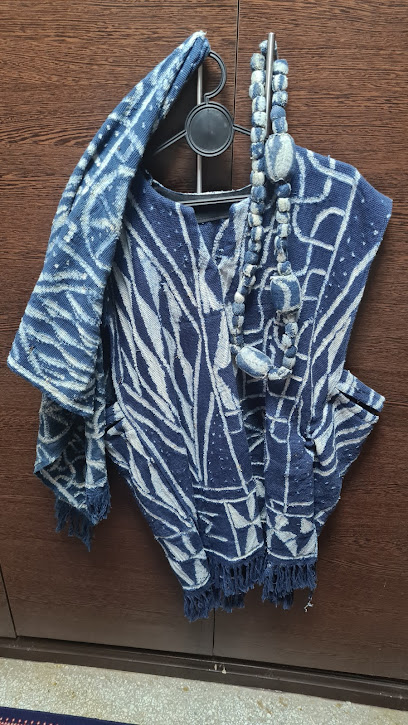
Buena Vista
Experience the tranquility and vibrant culture of Buena Vista Park in Kokrobite, Ghana, a perfect blend of nature and local charm.
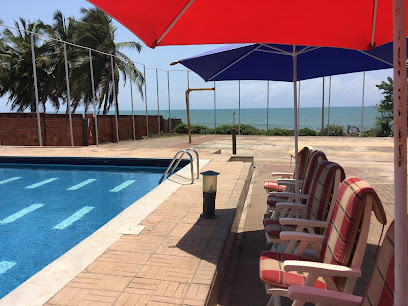
Essential places to dine
Big Milly's Backyard
Experience vibrant culture and stunning beachfront relaxation at Big Milly's Backyard in Kokrobite, Ghana.

Gazebo View
Experience delightful dining at Gazebo View in Accra—where culinary excellence meets family-friendly fun!
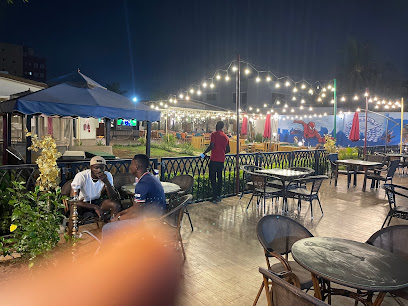
Kokrobite Garden
Discover culinary delights and cozy stays at Kokrobite Garden, your serene escape on Ghana's stunning coastline.
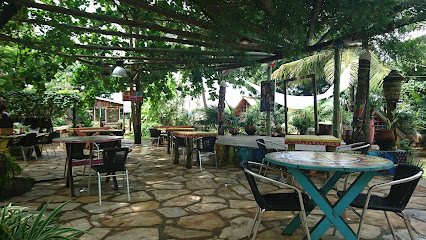
SERENITY RESIDENCES & SPA, Kokrobite beach
Discover unparalleled luxury and tranquility at Serenity Residences & Spa on Kokrobite Beach – your ultimate escape in Ghana.
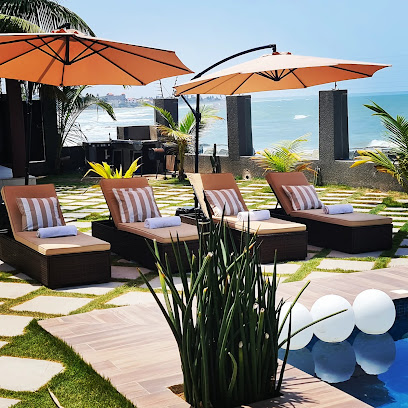
AMAX PJ 1 KOKROBITE
Discover authentic Ghanaian flavors at AMAX PJ 1 in Kokrobite – where local cuisine meets coastal charm.
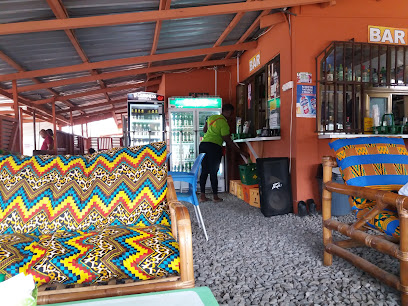
Glorious Black and White Restaurant & Fast Food
Discover authentic Ghanaian cuisine at Glorious Black and White Restaurant & Fast Food in Kasoa - where flavor meets tradition.
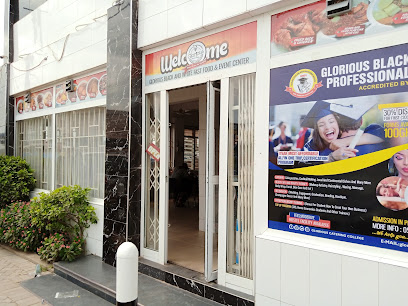
Dizzy Lizzie's Beach House (Hotel & Restaurant)
Experience coastal bliss at Dizzy Lizzie's Beach House, where delicious dining meets live music on Kokrobite Beach.
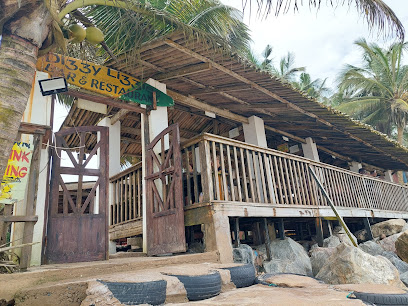
Table for two restaurant & lounge
Discover the flavors of Ghana at Table for Two Restaurant & Lounge - where culinary excellence meets inviting ambiance.
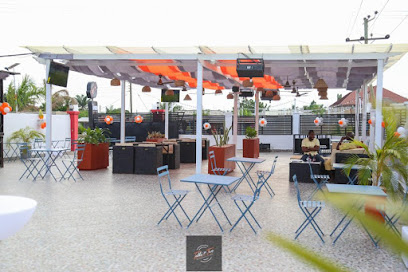
Atlantic Beach Bar & Grill
Experience tropical bliss at Atlantic Beach Bar & Grill in Kokrobite - where delicious cuisine meets stunning ocean views.
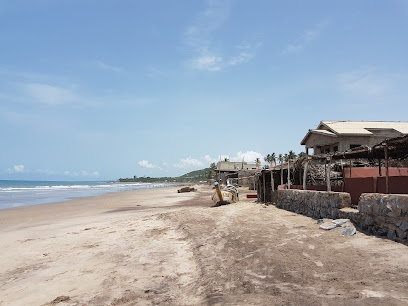
West View Lounge And Club
Discover the vibrant nightlife at West View Lounge And Club in Weija - where delicious food meets energetic entertainment.
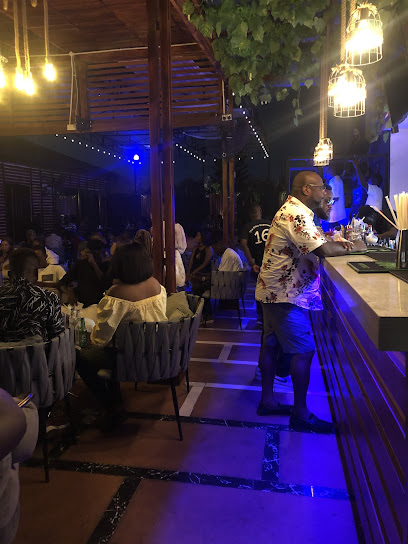
PREMIER BEACH RESORT
Experience ultimate relaxation at Premier Beach Resort in Kokrobite - your tropical getaway with stunning views and cultural adventures.

PHOENIX BEACH RESORT
Experience the serene beauty of Phoenix Beach Resort in Kokrobite – your perfect coastal escape awaits.
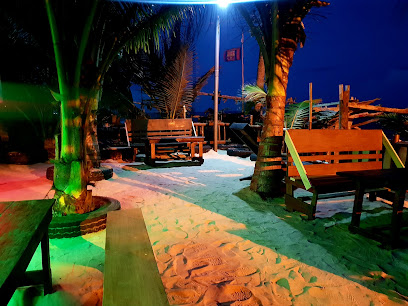
Kopatys Beach On Rocks
Discover tranquility at Kopatys Beach On Rocks in Kokrobite – where stunning views meet vibrant culture.
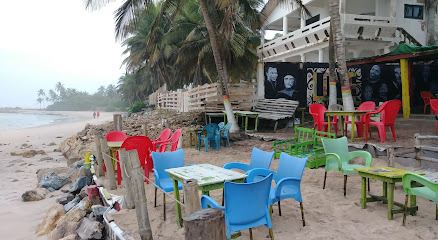
Candy's Restaurant
Discover the flavors of Ghana at Candy's Restaurant in Accra - where local cuisine meets warm hospitality.
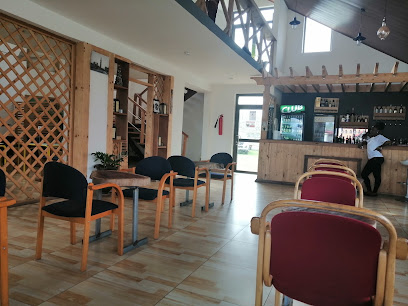
Tribe Bar and Lounge
Discover vibrant nightlife at Tribe Bar and Lounge in Kokrobite – where refreshing drinks meet live music in a lively atmosphere.
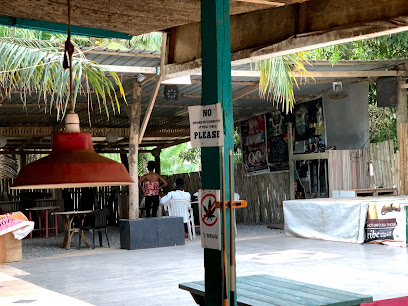
Markets, malls and hidden boutiques
FredTina Mart & Bar
Explore FredTina Mart & Bar in Kokrobite for local products, snacks, and a taste of Ghanaian culture amidst a vibrant community atmosphere.
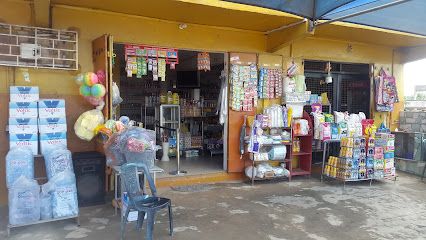
Lola Abidjan, hair and beauty
Experience unparalleled hair and beauty services at Lola Abidjan, your ultimate boutique retreat in picturesque Kokrobite, Ghana.
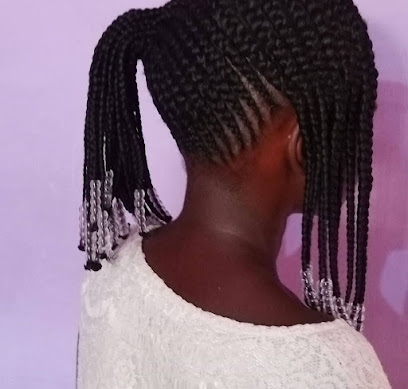
second chance printing press
Discover the vibrant Second Chance Printing Press in Kokrobite, where quality meets creativity in a friendly local atmosphere.

Gemek Beads and Bridal Vogue
Explore the exquisite fashion finds at Gemek Beads and Bridal Vogue in Kokrobite, where local craftsmanship meets vibrant style.
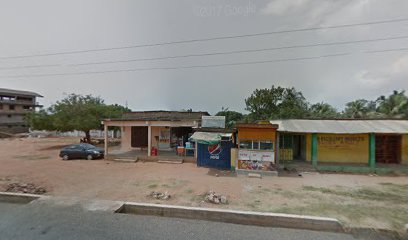
HT Collection & Accessories Ltd
Explore trendy women's fashion at HT Collection & Accessories Ltd in Kokrobite, where style meets local culture and vibrant shopping.
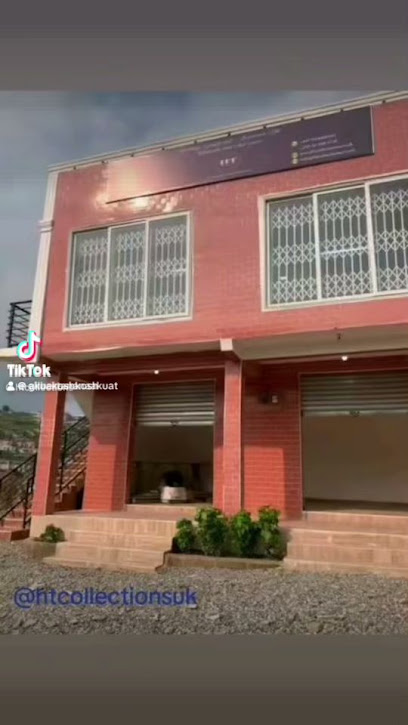
God Is Good Supermarket
Discover authentic Ghanaian flavors and local culture at God Is Good Supermarket in Accra, your go-to grocery store for unique finds and fresh produce.
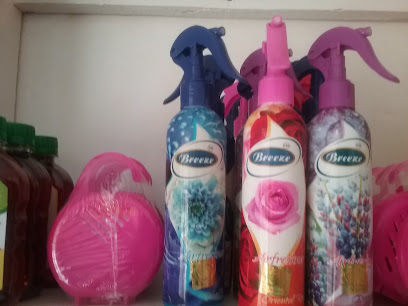
Charcoal Boutique
Explore the vibrant charm of Charcoal Boutique in Kokrobite, where every handcrafted item tells a story of Ghanaian artistry.
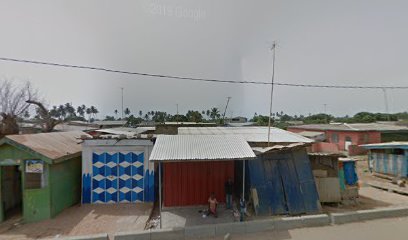
Exotic Ladies Plug
Explore the vibrant fashion at Exotic Ladies Plug in Kokrobite, where unique clothing and accessories reflect the essence of Ghana's culture.

Naa Adukwei Rentals
Experience the local essence of Kokrobite at Naa Adukwei Rentals, your go-to general store for essentials and unique finds.
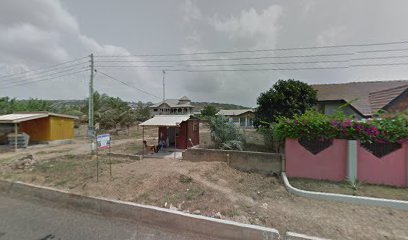
Amazing Impressions
Explore Amazing Impressions in Kokrobite for unique prints, local artistry, and a vibrant cultural experience that embodies the essence of Ghana.
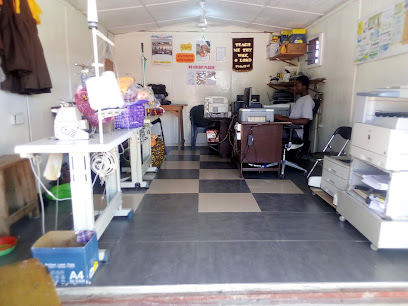
6Th March Ventures
Explore a charming home goods store in Kokrobite, showcasing unique Ghanaian craftsmanship and vibrant decor for every style.
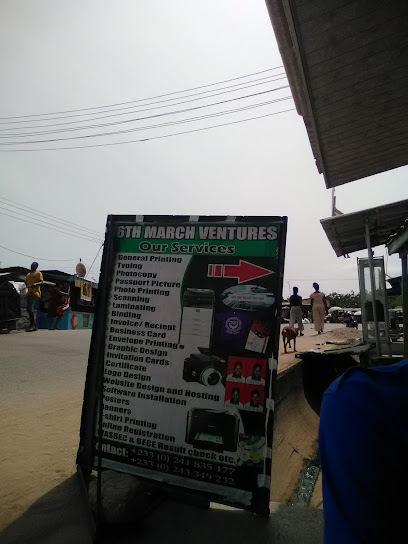
Kokrobite Drug Store
Discover essential healthcare at Kokrobite Drug Store, where friendly service meets convenience in the heart of Kokrobite's vibrant community.
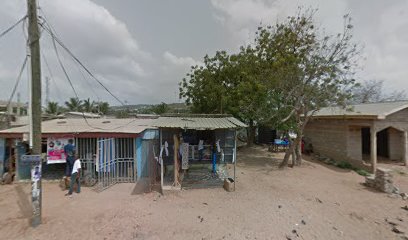
Gia foods
Discover the authentic flavors of Kokrobite at Gia Foods, a charming bakery offering delightful pastries and baked goods.

The Wig stall
Explore The Wig Stall in Kokrobite for an unparalleled selection of stylish wigs and expert advice, making your hair fashion dreams come true.
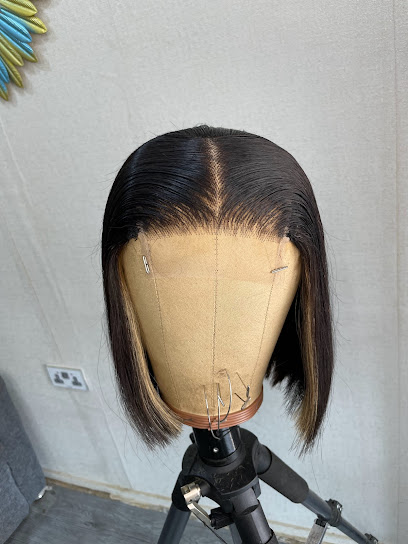
SoccaBet
Explore SoccaBet in Kokrobite, Ghana – your ultimate destination for sports cards, collectibles, and a vibrant fan community.
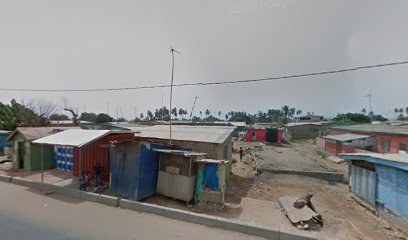
Essential bars & hidden hideouts
AMAX PJ 1 KOKROBITE
Discover the vibrant flavors of AMAX PJ 1 in Kokrobite, where grilled delicacies meet stunning ocean views for an unforgettable dining experience.
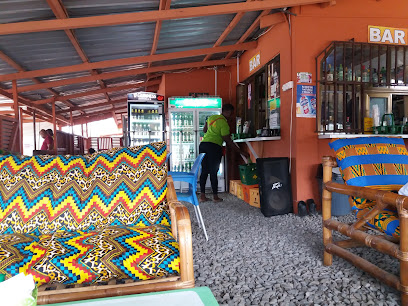
Tribe Bar and Lounge
Discover the vibrant atmosphere of Tribe Bar and Lounge in Kokrobite, where refreshing drinks, lively music, and great company await you.
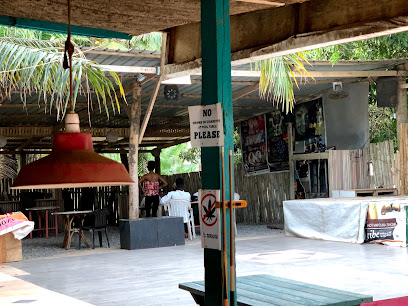
King Size Coffee Shop Beach Bar & Tours
Experience the perfect blend of beach relaxation and delicious grilled cuisine at King Size Coffee Shop Beach Bar & Tours in Kokrobite.
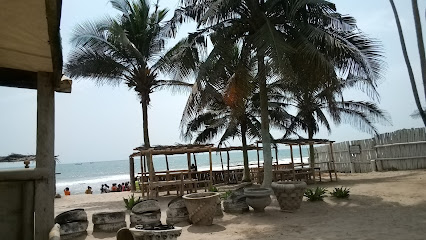
Paddy's Corner
Experience the vibrant atmosphere of Paddy's Corner in Kokrobite, where tropical drinks, local culture, and beachside relaxation await.

Free Kick
Discover the vibrant atmosphere of Free Kick Bar in Kokrobite, where refreshing drinks and good vibes await you on the beautiful Ghanaian coast.
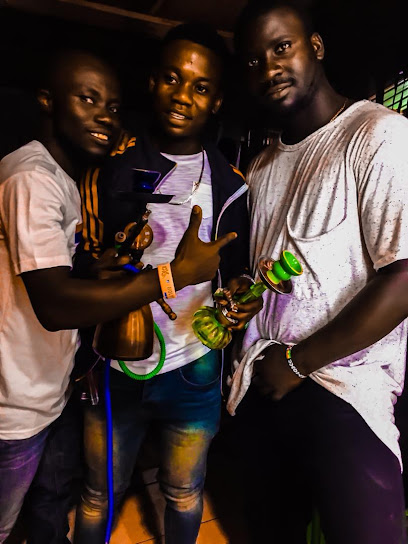
Dr. Kwame Nkrumah Beach Bar
Discover the vibrant atmosphere of Dr. Kwame Nkrumah Beach Bar, a perfect spot for relaxation and socializing on the beautiful shores of Kokrobite, Ghana.
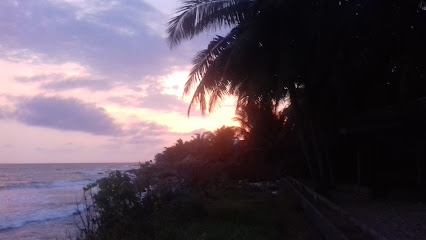
Paradise Pub
Discover the heart of Accra's nightlife at Paradise Pub, a vibrant spot filled with music, drinks, and local culture.
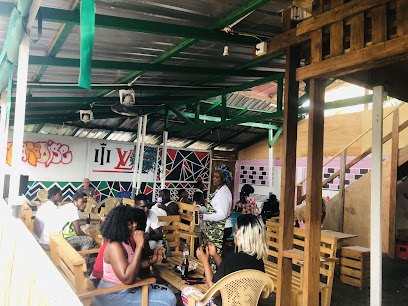
The Breeze,Coast Land Pub,Bar and Grill
Discover the vibrant atmosphere and coastal flavors at The Breeze, Kokrobite's top bar and grill for a relaxing getaway.

Kobby's Pub
Experience the vibrant nightlife at Kobby's Pub in Kokrobite, where local flavors and a lively atmosphere await every visitor.
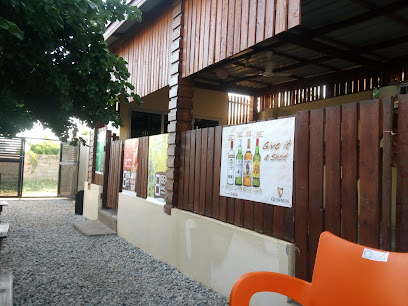
Castle Villa
Discover the charm of Castle Villa, a serene bar in Kokrobite offering refreshing drinks and a vibrant atmosphere that captures the essence of Ghana's coastal life.
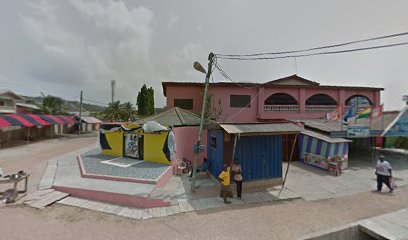
FOOTSTEPS COOL BEACH
Discover Footsteps Cool Beach in Kokrobite: where vibrant beach life meets refreshing drinks and unforgettable experiences.
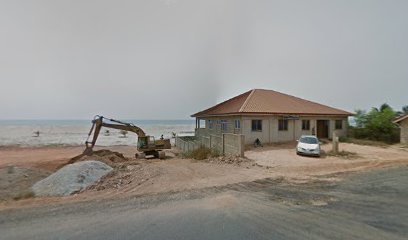
Afro Pub
Discover the vibrant flavors and lively atmosphere at Afro Pub, a cultural gem in Kokrobite offering delicious grilled dishes and unforgettable entertainment.
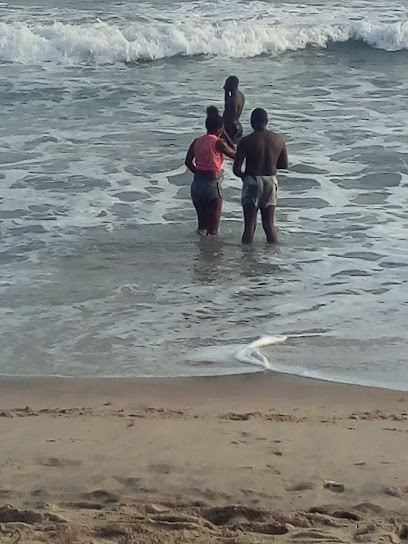
Felicity bar kokrobite
Experience the lively nightlife and local culture at Felicity Bar in Kokrobite, where refreshing drinks and friendly atmosphere await every traveler.

One Corner Pub Joint
Discover the vibrant atmosphere of One Corner Pub Joint in Kokrobite, a perfect blend of local culture and refreshing drinks.
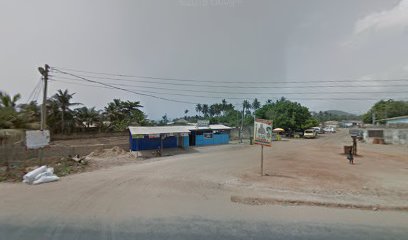
Local Phrases about Kokrobite
-
- HelloAane
[ah-neh] - GoodbyeBaako
[bah-koh] - YesAane
[ah-neh] - NoDaabi
[dah-bee] - Please/You're welcomeMesere wo
[meh-seh-reh woh] - Thank youMedaase
[meh-dah-seh] - Excuse me/SorryKasɛɛ
[kah-seh] - How are you?Wo ho te sɛn?
[woh hoh teh sen] - Fine. And you?Yɛte sɛn?
[yeh-teh sen] - Do you speak English?Wo ka kasa a, English?
[woh kah kah-sah ah, English] - I don't understandMenso me te sɛn
[mehn-soh meh teh sen]
- HelloAane
-
- I'd like to see the menu, pleaseMepɛ menu, mesere wo
[meh-peh menu, meh-seh-reh woh] - I don't eat meatMe nni aburo a, nyɛ
[meh nee ah-boo-roh ah, nyeh] - Cheers!Apae!
[ah-peh] - I would like to pay, pleaseMepɛ sika, mesere wo
[meh-peh see-kah, meh-seh-reh woh]
- I'd like to see the menu, pleaseMepɛ menu, mesere wo
-
- Help!Boa!
[boh-ah] - Go away!Kɔ wɔn!
[koh won] - Call the Police!Kyerɛ Nkrataa!
[chay-reh n-krah-tah] - Call a doctor!Kyerɛ dokita!
[chay-reh doh-kee-tah] - I'm lostMekɔ asase a, meka
[meh-koh ah-sah-seh ah, meh-kah] - I'm illMe yɛ abɔ me
[meh yeh ah-boh meh]
- Help!Boa!
-
- I'd like to buy...Mepɛ si...
[meh-peh see] - I'm just lookingMe si susu
[meh see soo-soo] - How much is it?Ɛyɛ sɛn?
[eh-yeh sen] - That's too expensiveƐyɛ yɛn ho a, hyɛ
[eh-yeh yen hoh ah, hyeh] - Can you lower the price?Ka wo bɛwo sika so?
[kah woh beh-woh see-kah soh]
- I'd like to buy...Mepɛ si...
-
- What time is it?Ɛwɔ sɛn?
[eh-woh sen] - It's one o'clockƐkɔm de
[eh-kohm de] - Half past (10)Ntɔn te (10)
[en-tohn teh (10)] - MorningAnɔpa
[ah-noh-pah] - AfternoonƐti
[eh-tee] - EveningAnadwo
[ah-nah-dwoh] - YesterdayNnwuka
[n-nwoo-kah] - TodayƐda
[eh-dah] - TomorrowƐbɔ
[eh-boh] - 1Kɛkɛ
[keh-keh] - 2Bɔ
[boh] - 3Nnɛ
[n-neh] - 4Nnɔnɔ
[n-noh-noh] - 5Nnum
[n-noom] - 6Nnɔnɔbɔ
[n-noh-noh-boh] - 7Nnan
[n-nahn] - 8Nnanan
[n-nah-nahn] - 9Krudin
[kruh-deen] - 10Kɔm
[kohm]
- What time is it?Ɛwɔ sɛn?
-
- Where's a/the...?Ɛhe na...?
[eh-heh nah] - What's the address?Ɛhe na adrese no?
[eh-heh nah ah-deh-seh noh] - Can you show me (on the map)?Ka wo bɛkɔ asaase so?
[kah woh beh-koh ah-sah-seh soh] - When's the next (bus)?Ɔmo a, ɛka?
[oh-moh ah, eh-kah] - A ticket (to ....)Wɔtebɔt a, ....
[woh-teh-boht ah]
- Where's a/the...?Ɛhe na...?
History of Kokrobite
-
Kokrobite, a small fishing village located just 30 kilometers west of Accra, was founded centuries ago by Ga fisherfolk. The Ga people, originally from the inland regions, migrated southwards to settle along the coast, attracted by the abundant marine resources. Their settlement laid the foundation for what would become a vibrant cultural hub.
-
During the 19th century, Kokrobite, like much of the Gold Coast, came under British colonial rule. The British influence brought significant changes to the region, including the introduction of Western education and Christianity. However, the people of Kokrobite managed to retain much of their traditional practices and beliefs, blending them seamlessly with new influences.
-
In the late 20th century, Kokrobite began to emerge as a cultural hotspot, attracting artists, musicians, and travelers from around the world. This transformation was largely due to the establishment of the Academy of African Music and Arts (AAMA) by Mustapha Tettey Addy, a renowned Ghanaian drummer. The academy became a beacon of African cultural expression, offering workshops, performances, and a platform for cultural exchange.
-
The Homowo Festival, celebrated by the Ga people, is a significant event in Kokrobite. Homowo, which means 'hooting at hunger,' commemorates the end of a historic famine. The festival involves a series of rituals, feasting, and traditional dances, with the entire community coming together to honor their ancestors and celebrate abundance.
-
Fishing has been the backbone of Kokrobite's economy for generations. The village's strategic location along the coast provides an ample supply of fish, which is a staple in the local diet and a primary source of income. Traditional fishing techniques, passed down through generations, are still practiced today, reflecting the community's deep connection to the sea.
-
In recent decades, Kokrobite has experienced a surge in tourism. Its pristine beaches, vibrant cultural scene, and proximity to Accra make it a popular destination for both local and international visitors. This influx of tourists has spurred local economic growth, with the establishment of guesthouses, restaurants, and cultural centers catering to the diverse needs of travelers.
-
With the rise in tourism, there has been a growing awareness of the need to protect Kokrobite's natural environment. Local organizations and community leaders have initiated various conservation efforts, including beach clean-ups, sustainable fishing practices, and environmental education programs to ensure that Kokrobite's natural beauty is preserved for future generations.
Kokrobite Essentials
-
Kokrobite is located approximately 30 kilometers west of Accra, the capital city of Ghana. The nearest international airport is Kotoka International Airport (ACC) in Accra. From the airport, you can take a taxi or a private car hire to Kokrobite. The journey typically takes around 1 to 1.5 hours depending on traffic conditions. Alternatively, you can use ride-hailing services such as Uber or Bolt.
-
In Kokrobite, the most common forms of transportation are taxis and shared minibuses known as 'trotros.' Taxis can be hired for private use or shared with other passengers heading in the same direction. Trotros are an affordable option for getting around, but they can be crowded and less comfortable. For a more convenient and personalized experience, consider renting a car. Walking is also a great way to explore the local surroundings, especially along the beachfront.
-
The official currency in Ghana is the Ghanaian Cedi (GHS). Credit and debit cards are accepted in some hotels, restaurants, and shops, but it is advisable to carry cash, especially for smaller establishments and local markets. ATMs are available in Kokrobite, but it is recommended to withdraw sufficient cash in Accra before traveling to ensure you have enough funds for your stay.
-
Kokrobite is generally safe for tourists, but it is important to take standard precautions. Avoid walking alone at night, especially in poorly lit areas. Keep an eye on your belongings in crowded places, such as markets and public transportation. While Kokrobite is not known for high crime rates targeting tourists, it is always best to stay vigilant and aware of your surroundings.
-
In case of an emergency, dial 193 for medical emergencies and 191 for police assistance. The nearest major hospital is located in Accra, but there are local clinics in Kokrobite that can handle minor health issues. It is advisable to have travel insurance that covers medical emergencies. Pharmacies are available in the town for over-the-counter medications.
-
Fashion: Do dress modestly, especially when visiting religious sites and local communities. Avoid wearing revealing clothing. Religion: Do respect local customs and traditions. Remove your shoes before entering homes and religious sites. Public Transport: Do be respectful and give up your seat to elderly or pregnant passengers. Don't eat or drink on public transportation. Greetings: Do greet people with a handshake and a smile. It is polite to ask about someone's well-being before engaging in conversation. Eating & Drinking: Do try local dishes and accept food offerings graciously. Don't refuse hospitality, as it is considered impolite.
-
To experience Kokrobite like a local, visit the local markets where you can purchase fresh produce and handmade crafts. Engage with locals, as they are often friendly and eager to share stories about their culture and traditions. Don't miss the opportunity to attend a traditional drumming and dance performance at Big Milly's Backyard, a popular spot for both locals and tourists. For a unique experience, take a walk along the beach during sunrise or sunset to enjoy the serene beauty of the coastline.
Trending Landmarks in Kokrobite
-
Kaneshie Market Complex
-
Cape Coast Castle
-
Kwame Nkrumah Memorial Park & Mausoleum
-
Legon Botanical Gardens Ghana..
-
Centre for National Culture
-
W.E.B Du Bois Memorial Centre for Panafrican Culture - Ghana.
-
Bojo Beach Resort
-
W.E.B. DuBois Centre in Accra
-
National Museum of Ghana
-
Valco Roundabout
-
The Luxury Beach Resort
-
Bojo Beach
-
Boti Waterfalls
-
Big Milly's Backyard
-
Accra Zoo
Nearby Cities to Kokrobite
-
Things To Do in Koforidua
-
Things To Do in Cape Coast
-
Things To Do in Ho
-
Things To Do in Sekondi-Takoradi
-
Things To Do in Takoradi
-
Things To Do in Lomé
-
Things To Do in Kumasi
-
Things To Do in Kpalimé
-
Things To Do in Aneho
-
Things To Do in Notse
-
Things To Do in Lokossa
-
Things To Do in Atakpamé
-
Things To Do in Ouidah
-
Things To Do in Sunyani
-
Things To Do in Cotonou








